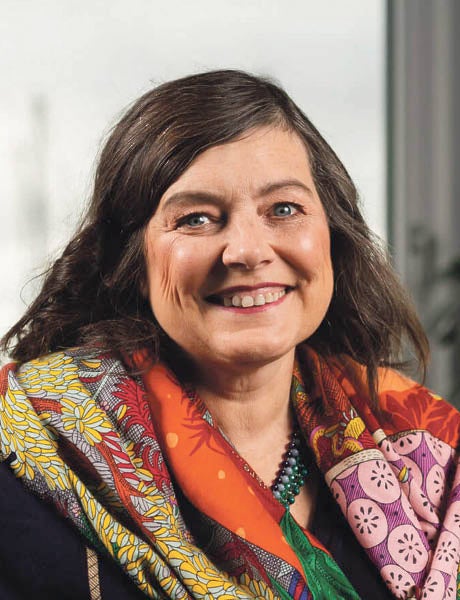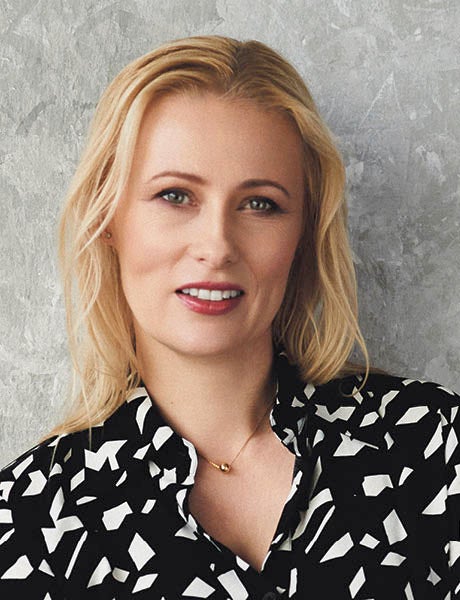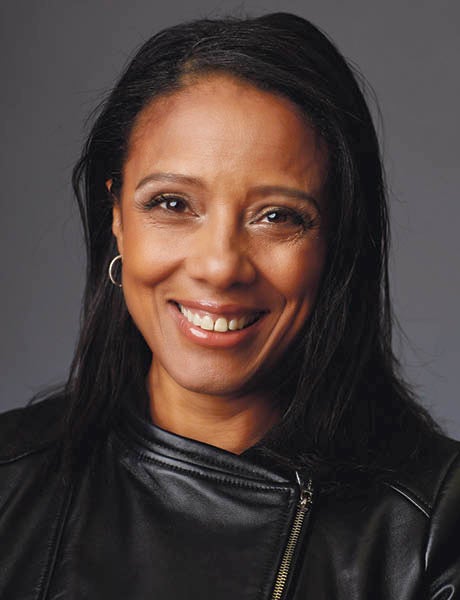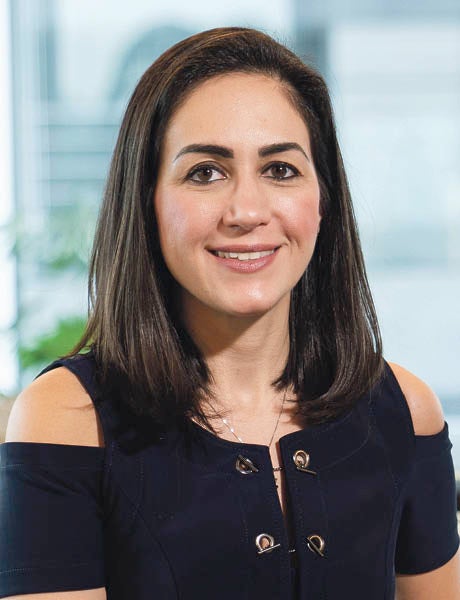
Fintech is a brave new world of creativity and exploration, but you wouldn’t necessarily know that by looking at the boards of most leading institutions in the sector. According to a 2018 LendIt survey, only 37 per cent of fintech employees are female, with representation dropping to just 19 per cent at C-suite level. Although the number of women in fintech is steadily improving, there remain systemic flaws in the systems that create barriers to gender diversity and hinder women’s rise to the top.
Deep-rooted challenges and biases persist, despite strong evidence of the value women bring to businesses. The Credit Suisse Research Institute reports that companies with at least one woman on the board perform 26 per cent better than those with male-only boards, while Forbes found female entrepreneurs generate 20 per cent more revenue than their male counterparts, despite receiving 50 per cent less venture capital funding.
Here, four world-leading female pioneers of financial technology, who are helping to open doors for the next generation of female founders and executives, share their insights. They discuss the challenges they’ve faced, the need for better representation and their hopes for a gender-neutral future in financial services.

Anne Boden, Starling Bank, UK
Her love for technology showed itself at the age of four, when Anne Boden’s steelworker father bought a reel-to-reel tape recorder for her birthday. Although not a typical toy for a toddler, the bulky piece of kit, innovative in its day, sparked a life-long interest in machines in the little girl from South Wales.
After a 30-year career in banking at some of the world’s best-known financial heavyweights, including Lloyds TSB, Allied Irish Bank and the Royal Bank of Scotland, Boden’s tech credentials came into their own. Finding herself ashamed to be a banker when it was clear the 2008 global financial crisis had done nothing to cure the industry’s ills, she started Starling Bank in 2014 and began building wealth management apps from scratch.
While she is proud that 42 per cent of the executive team and 40 per cent of board members at Starling are women, she says the male-dominated demographic she started out in is yet to see significant disruption. “Women don’t see themselves in an industry that’s full of men, so why would they want to join it?” she asks. “I know I don’t look like a fintech leader, so I always try to make noise about it.”
This compulsion to bang the drum comes after a lifetime of being told to “tone it down” by naysayers who cautioned Boden that ambitious women in finance would only become frustrated as they reached their inevitable limits. “I’m glad that advice went over my head, because if it didn’t, I wouldn’t have built a bank,” says the rightful queen of UK fintech.
As a female founder, Boden was underestimated once again when trying to secure funding for Starling in Silicon Valley. “Investors couldn’t see past their idea of what a founder looked like,” she says. “They were only interested in backing white men in gilets with beards who fit the startup stereotype.” But such knock-backs only helped strengthen Boden’s resolve. “I worked towards my goal, not only to help improve people’s financial wellness, but also to show them that a woman can succeed in a male-dominated industry,” she says.
While Boden insists women in fintech still find themselves with more to prove, she believes the industry is slowly waking up to the benefits of gender diversity. “We’ve started to have the conversations, so now we need to do the work,” she says. “As long as we create an environment that’s welcoming, I’m certain fintech companies can change for the better.”
I know I don’t look like a fintech leader, so I always try to make noise about it

Anna Maj, World Business Angel Investment Forum,
Poland
This female fintech champion likes to say she was a woman in fintech before the term was even invented. Joining Citigroup at the turn of the millennium, Anna Maj went straight into the newly created sector of financial technology, where she began scratching the surface of internet banking, account aggregation and open banking.
While there were several women assigned to non-managerial roles within the bank, she came across very few further up the corporate ladder, especially within her tech-focused sector. “It would often happen that I would be sitting in a meeting with 20 people and realise I was the only woman there,” she says. “At first, I didn’t even recognise there were gender issues because it was a daily routine for me, but as time went by and I was promoted, I found being the only woman had its challenges.”
Maj claims that rather than being limited by the “glass ceiling”, she repeatedly found herself facing off against a “glass cliff”, a metaphor for the way she feels women in tech are tested to a greater degree than men and pushed out if they fail to deliver. “This is a battlefield for many women,” she says.
Navigating such battlefields seems to have bestowed her with a warrior-like mentality, however, spurring her on rather than cutting her down. A high achiever in the extreme, Maj started school a year earlier than the other children in her hometown of Warsaw. She currently works as a senior lecturer at the Center for Financial Training & Education, a senator at the WBAF Angel Investment Fund and a jury member at the European Innovation Council.
She has an MBA, is finishing up a PhD, speaks five languages, has published two books, and last year featured in the Women in FinTech Powerlist, and was among the Top 25 Women Leaders in Financial Technology.
Part of the transformation generation that grew up as the Eastern Bloc’s post-communist countries began opening to the world, Maj has never faced the dilemma of having to choose between her career and personal life, deciding in her 30s that her professional development and freedom trumped having a family. “It very much depends, as everybody knows, on how you define success, what are your values and what you want out of life,” she says. “Every life is different.”
Maj welcomes the recent wave of positive initiatives supporting female leaders in fintech companies, but says a change in the global mindset must take place before minorities of all kinds can achieve genuine representation and shake off the shackles of imposter syndrome. “Women for women only doesn’t make sense in the long run,” she says. “We need the entire population to support diversity, not only in terms of gender, but also age, background, culture, ethnicity, skills and confidence. It’s by connecting all these things we can create a collaborative ecosystem that’s best for business.”
Women for women only doesn’t make sense in the long run. We need the entire population to support diversity

Kahina van Dyke, Standard Chartered, Singapore
From a family of rule breakers, Kahina van Dyke’s parents met at a civil rights protest in the late-1960s, where her Black father was marching and her white mother was reporting. At a time of great social unrest and deep racial divisions, they raised five children in northern New York State, teaching them all to stand up and be counted. “I think when you’re raised by two people who go against the odds and have the belief that just because something is legal it doesn’t mean it’s right, you have the idea of constructively challenging the assumptions of the system,” says van Dyke.
This year, starting a new role in digital channels and data analysis with Standard Chartered in Singapore, van Dyke’s path to becoming a fintech leader almost mirrors that of Anna Maj, beginning with Citigroup in 1999, when banks were just starting to explore “this ground-breaking new thing called the internet”. Also similar to Maj, she found that while her team included plenty of women at the start, as she progressed in her career, through positions with Facebook, Mastercard and Ripple, diversity, both in terms of gender and ethnicity, became harder to find.
Pointedly announcing “Good morning, gentlemen”, when entering a boardroom full of men helped her feel she was both acknowledging and owning the disparity, as did swapping her pin-striped trousersuits for dresses once she felt confident enough to do so. “I remember that being a very freeing thing as I hit my 30s and my stride. I realised, yes, I’m the only woman, but actually my femininity is my unique quality and strength,” she says.
Motivated by her parents’ conviction that she should use her blessings to help others, van Dyke worked tirelessly to outperform her male colleagues to pave the way for the next generation of non-traditional candidates. Running a global team by the time she had her twins, she hoped her work ethic and seniority would shield her from the sidelining some of her friends had faced when starting families earlier in their careers. Nonetheless, offers of moving into less intensive roles and questions about who was looking after her children were commonplace. “I never saw my male colleagues get asked those questions,” she says. “Even the ones that had six kids.”
As banking continues to evolve into a more collaborative and integrated entity, however, van Dyke sees an opportunity for the development of new leadership and working models that she hopes will ultimately result in more women in fintech. “In ten years, our C-suites are not going to look the same,” she says. “I’m really excited about that, but we all have to push towards it. Those who get it right are going to win and those who don’t are going to be dinosaurs.”
Yes, I’m the only woman, but actually my femininity is my unique quality and strength

Cristina Junqueira, Nubank, Brazil
When Nubank, one of a new breed of challenger banks, received a tenfold-unicorn valuation in 2018, it became the first company in the world with a female co-founder to reach the $10-billion milestone. The woman with that credit to her name is Cristina Junqueira, a gifted and idealistic Brazilian engineer who, along with her partners, Colombian David Vélez and American Edward Wible, has disrupted the institutionally dysfunctional and complacent banking landscape in Latin America.
Nubank, now the world’s largest digital banking startup with more than 30 million customers, operates exclusively online, providing financial services that strive to be simple, human and transparent.
After a degree in industrial engineering and a masters in economic and financial modelling, Junqueira found herself rising quickly through the ranks of Unibanco, the largest private banking group in Brazil. With no female role models in positions above her, she was advised to look and act more like her male colleagues, and complied by restricting her wardrobe to gender-neutral ensembles.
“I’ve always strived to have a protagonist attitude in my career, so I tackled this point with the same discipline I tackled every other piece of development feedback I received. But it was sad to see that the one thing they cared about was how I looked as opposed to the impact I was able to drive with my work,” she says.
This, along with the constant rejection of her proposals to make financial services more transparent and affordable, left Junqueira deflated and disillusioned. Deciding she was “done making rich people richer”, she left the banking behemoth and launched Nubank after stumbling across a meeting of ideals and expertise with her fellow co-founders.
Junqueira has two daughters, the first of whom was born as Nubank received its series-A financing round. Signing the deal from her hospital bed the day before the birth and back on the phone to clients the day after, she affectionately refers to the bank and her first-born as twins, and unashamedly admits her work and her family are of equal importance.
She believes the flexibility and creativity of fintech companies is more attractive to and supportive of women, and is proud to boast a payroll that is 43 per cent female, including many in leadership and C-level positions. With in-house initiatives such as “Yes, She Codes”, Nubank hopes to see more women in fintech in the future which, Junqueira expects, will lead to better products. “If we only have a small group of people who look alike and think alike creating the financial services of the future, it’s likely those products will only fit the needs of people similar to them,” she concludes.
If we only have a small group of people who look and think alike creating the financial services of the future, it’s likely those products will only fit the needs of people similar to them

Fintech is a brave new world of creativity and exploration, but you wouldn’t necessarily know that by looking at the boards of most leading institutions in the sector. According to a 2018 LendIt survey, only 37 per cent of fintech employees are female, with representation dropping to just 19 per cent at C-suite level. Although the number of women in fintech is steadily improving, there remain systemic flaws in the systems that create barriers to gender diversity and hinder women’s rise to the top.
Deep-rooted challenges and biases persist, despite strong evidence of the value women bring to businesses. The Credit Suisse Research Institute reports that companies with at least one woman on the board perform 26 per cent better than those with male-only boards, while Forbes found female entrepreneurs generate 20 per cent more revenue than their male counterparts, despite receiving 50 per cent less venture capital funding.
Here, four world-leading female pioneers of financial technology, who are helping to open doors for the next generation of female founders and executives, share their insights. They discuss the challenges they’ve faced, the need for better representation and their hopes for a gender-neutral future in financial services.
